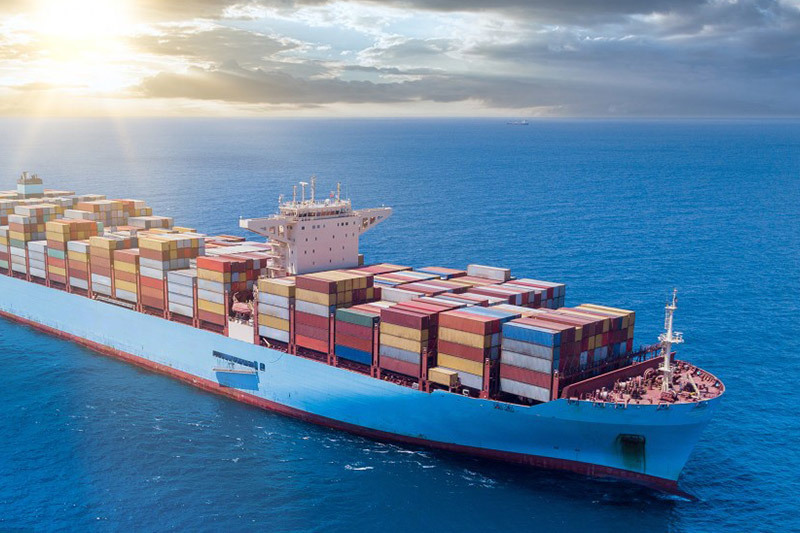news
Maximizing Efficiency with Expert Ship Refitting Services
Maximizing Efficiency with Expert Ship Refitting Services
In the competitive world of maritime operations, maximizing efficiency is paramount for ship owners and operators. One of the most effective ways to achieve this goal is through **expert ship refitting services**. This comprehensive guide delves into the essential aspects of ship refitting, including methodologies, benefits, and frequently asked questions. By the end, you will understand how to leverage these services to enhance your vessel's performance and longevity.
Table of Contents
- 1. What is Ship Refitting?
- 2. The Importance of Ship Refitting for Operational Efficiency
- 3. Benefits of Expert Ship Refitting Services
- 4. Choosing the Right Ship Refitting Service Provider
- 5. Common Techniques Used in Ship Refitting
- 6. Cost Considerations for Ship Refitting
- 7. Maintaining Efficiency Post-Refit
- 8. FAQs on Ship Refitting Services
1. What is Ship Refitting?
Ship refitting refers to the process of renovating, upgrading, or refurbishing a vessel to enhance its performance, safety, and compliance with current regulations. This procedure may include various modifications such as structural repairs, engine upgrades, and the installation of modern navigational systems. By undertaking a refit, ship owners can extend the operational life of their vessels while improving efficiency and reducing environmental impact.
Why is Ship Refitting Necessary?
Over time, ships encounter wear and tear due to environmental exposure and operational stresses. Regular refitting is crucial to ensure that vessels remain safe, reliable, and efficient. Moreover, advancements in technology and changing regulatory standards necessitate periodic upgrades to maintain competitiveness in the market.
2. The Importance of Ship Refitting for Operational Efficiency
Ship refitting plays a vital role in maintaining and enhancing operational efficiency. The importance can be detailed in the following areas:
Safety Enhancements
Refitting helps address safety concerns by updating outdated systems and repairing structural defects. Modern safety equipment and compliance with international maritime safety regulations are significant benefits of a well-executed refit.
Fuel Efficiency
Upgrading propulsion systems and optimizing hull designs during refitting can lead to significant improvements in fuel efficiency. This not only lowers operational costs but also reduces a vessel's carbon footprint, making it more environmentally friendly.
Increased Resale Value
Vessels that undergo regular refitting hold their value better in the market. A well-maintained ship with modern features is more attractive to potential buyers, resulting in a higher resale price.
3. Benefits of Expert Ship Refitting Services
Choosing expert ship refitting services offers numerous advantages that contribute to enhanced operational efficiency. Here are some key benefits:
1. Tailored Solutions
Expert ship refitting providers offer customized solutions based on the specific needs of each vessel. They conduct thorough assessments to identify areas that require attention and recommend targeted upgrades.
2. Access to Advanced Technology
Expert refitting services often incorporate the latest technologies and techniques, ensuring that vessels benefit from cutting-edge advancements in maritime engineering.
3. Skilled Workforce
Experienced ship refitting professionals possess specialized knowledge and skills that are essential for executing complex refitting tasks. Their expertise results in higher quality workmanship and minimizes the risk of costly errors.
4. Compliance with Regulations
Ship refitting services ensure that vessels meet all necessary regulatory requirements, which is crucial for avoiding legal issues and fines. Compliance with international standards enhances a ship's reputation and operational credibility.
5. Reduced Downtime
Expert refitting services utilize efficient project management techniques to minimize downtime during the refitting process. This allows vessels to return to operation more quickly, reducing revenue loss for ship owners.
4. Choosing the Right Ship Refitting Service Provider
Selecting a reputable ship refitting service provider is critical to achieving the desired outcome. Here are some factors to consider:
1. Experience and Reputation
Research the provider's experience in the industry. Look for customer testimonials and case studies that showcase their successful projects.
2. Range of Services Offered
Ensure that the provider offers a comprehensive range of refitting services, including structural modifications, engine upgrades, and electrical system renovations.
3. Certifications and Compliance
Verify that the provider holds relevant certifications and adheres to international maritime regulations. This ensures that the refitting work meets industry standards for safety and quality.
4. Project Management Skills
Assess the provider's project management capabilities. Effective project management is crucial for minimizing downtime and ensuring that the refitting process stays on schedule and within budget.
5. Common Techniques Used in Ship Refitting
Various techniques are employed during the ship refitting process to enhance performance and efficiency. Some common techniques include:
1. Hull Modification
Modifying the hull shape can significantly improve hydrodynamics, leading to better fuel efficiency and faster speeds. This may involve the installation of bulbous bows or stern modifications.
2. Engine Upgrades
Replacing or retrofitting engines with more efficient models can reduce fuel consumption and emissions. Modern engines often incorporate advanced technologies that enhance performance and reliability.
3. Electrical System Overhaul
Upgrading electrical systems, including lighting and navigation equipment, improves safety and operational efficiency. Energy-efficient systems can lead to substantial cost savings over time.
4. Incorporating Renewable Energy
Integrating renewable energy sources, such as solar panels, can reduce reliance on traditional fuel sources, enhancing sustainability and reducing operating costs.
5. Safety Equipment Installation
Updating safety equipment, such as lifeboats, fire suppression systems, and electronic monitoring, is essential for compliance and enhancing crew safety.
6. Cost Considerations for Ship Refitting
Understanding the costs associated with ship refitting is crucial for effective budgeting. Several factors can influence the overall expense:
1. Scope of Work
The extent of the refitting required directly impacts costs. Comprehensive upgrades will necessitate a larger investment than minor repairs.
2. Materials and Equipment
The choice of materials and equipment can significantly affect costs. High-quality materials may have a higher upfront cost but can lead to savings in maintenance and repairs over time.
3. Labor Costs
Labor costs vary based on the complexity of the tasks and the expertise required. Skilled labor may command higher rates, but the quality of work can justify the expense.
4. Downtime Impact
Consider the potential financial impact of downtime during the refitting process. Effective scheduling and project management can help mitigate costs associated with lost revenue.
7. Maintaining Efficiency Post-Refit
Once the refitting process is complete, maintaining efficiency is crucial to reaping the benefits of the upgrades. Consider the following strategies:
1. Regular Maintenance
Implement a routine maintenance schedule to address wear and tear promptly. Regular inspections and servicing can prevent costly repairs and ensure optimal performance.
2. Staff Training
Invest in training for crew members to ensure they are familiar with any new systems and technologies installed during the refit. Proper training enhances safety and operational efficiency.
3. Performance Monitoring
Utilize performance monitoring systems to track fuel consumption, engine performance, and other critical metrics. This data can help identify areas for further improvement.
8. FAQs on Ship Refitting Services
1. How often should a ship undergo refitting?
Most vessels should undergo refitting every 5 to 10 years, depending on usage and regulatory requirements.
2. What types of vessels can benefit from refitting?
All types of vessels, including cargo ships, tankers, and passenger vessels, can benefit from refitting services.
3. How long does the refitting process typically take?
The duration of the refitting process varies based on the scope of work, ranging from a few weeks to several months.
4. Are there financing options available for ship refitting?
Many refitting service providers offer financing options or payment plans to help manage costs.
5. Can I continue using my vessel during a refit?
In some cases, partial refitting allows you to continue operating your vessel, depending on the nature of the upgrades.
Conclusion
Maximizing efficiency through expert ship refitting services is a strategic approach that can significantly enhance the performance and longevity of your vessel. By understanding the importance of refitting, selecting the right service provider, and implementing ongoing maintenance strategies, ship owners can ensure their vessels operate at peak efficiency. Embracing modern technologies and techniques not only improves operational costs but also contributes to a more sustainable maritime industry. Investing in expert ship refitting services is not just a choice; it’s a necessary step towards future-proofing your maritime operations.
Other news
Exploring the Benefits of Used Commercial Vessels for Your Transportation Needs
When it comes to the transportation industry, the choice of vessels plays a crucial role in operational efficiency and cost-effectiveness. Used commercial vessels have gained popularity among businesses seeking to optimize their maritime logistics. Purchasing a pre-owned vessel can offer several benefits that are both practical and financially savvy. One of the foremost advantages of acquiring a u
Exploring the Efficiency of Self Unloading Bulk Carriers: Revolutionizing Maritime Transport
Exploring the Efficiency of Self Unloading Bulk Carriers Table of Contents Introduction to Self Unloading Bulk Carriers History and Evolution of Self Unloading Bulk Carriers Design Features of Self Unloading Bulk Carriers Operational Efficiency of Self Unloading Bulk Carriers Advantages Over Traditional Bulk Carriers Environmental Impact and Sustainability Technological Advancements
Understanding the Significance of 5000 DWT Bulk Carriers in Maritime Transport
Bulk carriers are a vital component of the maritime transport sector, particularly when it comes to the efficient movement of solid bulk commodities. One of the most commonly utilized classes of these vessels is the 5000 DWT (Deadweight Tonnage) bulk carrier. Understanding their specifications and advantages can provide valuable insights into their significance within the shipping industry. A 5000
Privacy
The Software respects and protects the personal privacy of all users of the Services. In order to provide you with a more accurate and personalized service, the Software will use and disclose your personal information in accordance with this Privacy Policy. However, the Software will treat such information with a high degree of diligence and duty of care. Except as otherwise provided in this Privacy Policy, the Software will not disclose or provide this information to third parties without your prior permission. The Software may update this Privacy Policy from time to time. You will be deemed to have agreed to this Privacy Policy in its entirety when you agree to the Software Service Use Agreement. This Privacy Policy is an integral part of this Software Service Use Agreement. 1. Scope of ApplicationIn your use of the Software's network services, the Software automatically receives and records information on your cell phone, including, but not limited to, your health data, the language used, the date and time of access, information on hardware and software characteristics, and data on webpage records of your needs; 2. Use of InformationAfter obtaining your data, the Software uploads it to the server to generate your leaderboard data so that you can better use the Services. The Software will upload your data to the server to generate your ranking data so that you can use the service in a better way. 3. Information Disclosure 3.1 The Software will not disclose your information to untrusted third parties. 3.2 In accordance with the relevant provisions of the law, or the requirements of administrative or judicial bodies, disclosure to third parties or administrative or judicial bodies; 3.3 If you appear to violate the relevant Chinese laws, regulations or relevant rules, it is necessary to disclose it to a third party; 4. Information Storage and Exchange The information and materials collected by the Software about you will be stored on the servers of the Software and/or its affiliates. The information and data may be transferred to and accessed, stored and displayed outside of your country or region or the country in which the Software collects the information and data. 5. Information Security When using the Software's network services to conduct online transactions, you will inevitably disclose your personal information, such as contact information or postal address, to the counterparty or potential counterparty. Please protect your personal information and provide it to others only when necessary. If you find that your personal information has been compromised, please contact the software's customer service immediately so that the software can take appropriate measures.













